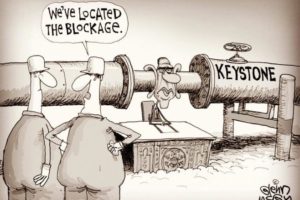In 1665, there was a massive outbreak of disease in England that killed almost 100,000 people, up to a fifth of London’s population. People sought to avoid infection through sniffing flowers, smoking, killing cats, and praying. Only later did they begin to realize that nobody was immune. In 2008, the declines in the value of homes and stocks have caused Americans’ net worth to fall $1.7 Trillion, the biggest drop since 2002. We have watched large financial companies such as Bear Stearns, IndyMac, Fannie Mae, Freddie Mac, AIG, Merrill Lynch, and Lehman Brothers come under extreme pressure from the infection in our credit markets. The financial services industry has the attention of the government and only now has Uncle Sam begin to realize that nobody is immune from the credit contagion.
The financial crisis that started in earnest during 2007 has ignited conversation about Uncle Sam buying up the toxic assets that started the infection. I am a fiscal conservative and I reject the idea of government becoming a larger presence in our lives than it is currently. However, the pain on Wall Street is spreading to Main Street, and the moves by our government might be against Republican principles, but are in line with economic principles.
The mortgage assets that are being held by our nation’s financial institutions are considered debt on their balance sheet, and traditionally debt has long-term intrinsic value. Accounting rules require these institutions to “mark” these assets to market value. Currently no market exists for the trading of mortgages, so they are writing down the value of these assets conservatively. Of course, the mortgages have not been sold at these revalued prices, but instead reflect the price they “might” be able to demand. The financial institutions are then forced to raise more capital to protect against future losses on the devalued assets. This explains why our banks are reporting massive losses and scrambling weekly for more capital to shore up their balance sheets.
The creation of a Resolution Trust Corporation brings back images of the S&L crisis in the ‘80’s and ‘90’s, but it will give Paulson the necessary power to stop the bleeding in the financial industry. Uncle Sam can pick up these assets at a discounted value and hold on to them until the market shifts. Once the market stabilizes, the RTC will liquidate the assets to private investors at a profit. Having the RTC available as a major buyer of these assets will create a “market” and set the floor value, which will allow private investors to regain confidence in purchasing mortgages.
I believe in free market principles and under “normal” circumstances private companies need to be allowed to fail. Without the failure of select companies and institutions there will be a proliferation of choices that lack any calculation for risk. The markets work effectively when left undisturbed and allowed to move freely. However, when select circumstances occur as a result of outside influence, then free market principles might become ineffective. Accounting rules are wreaking havoc on our nation’s most treasured resource, investment and commercial banks, which lend to our business owners, consumers, and promote economic development. Not only is this level of government intervention needed….it is long overdue.



